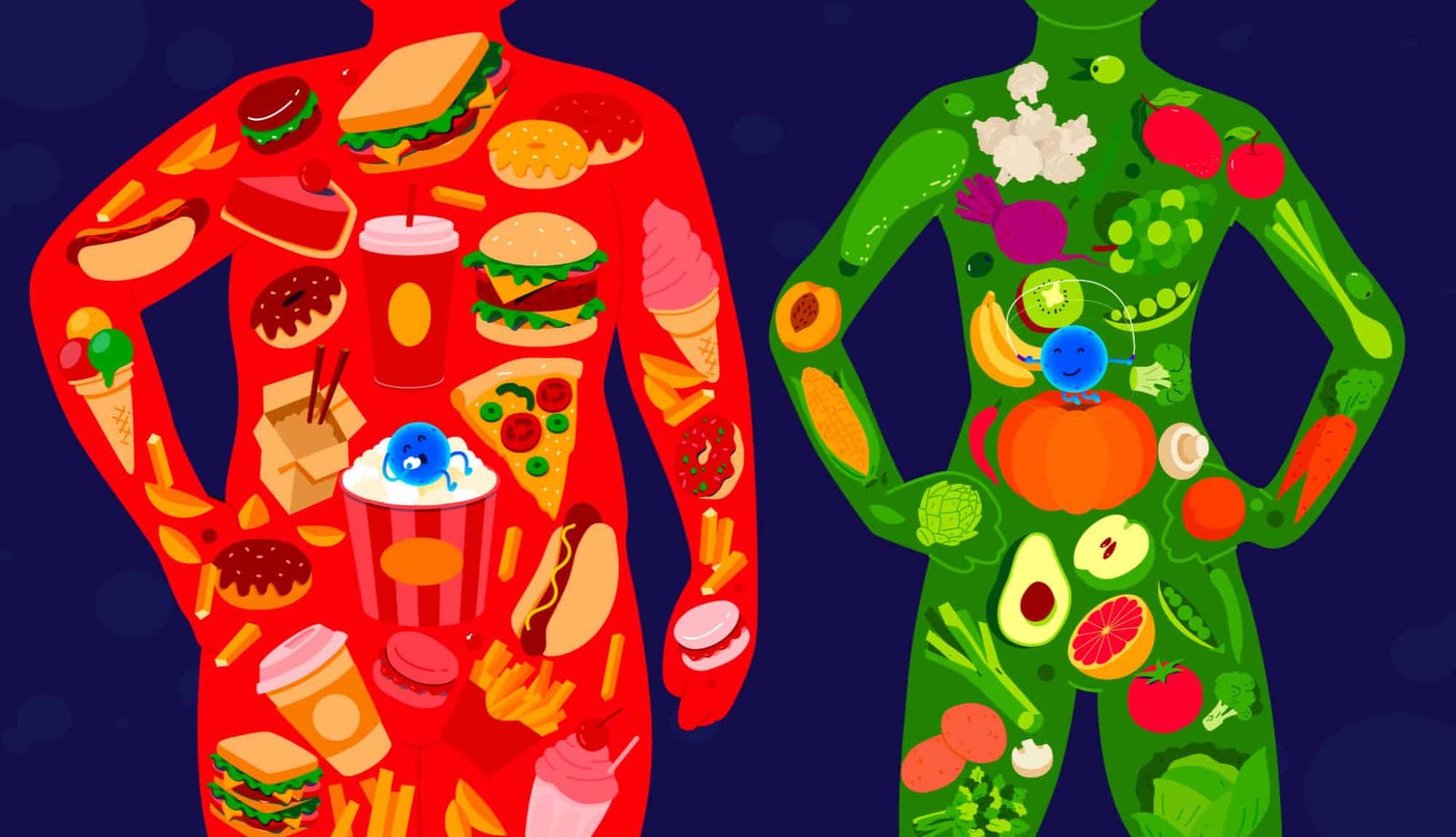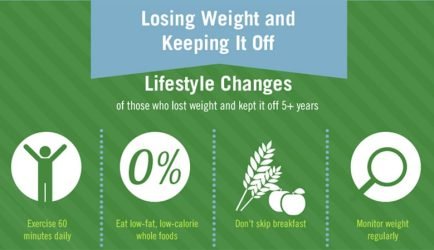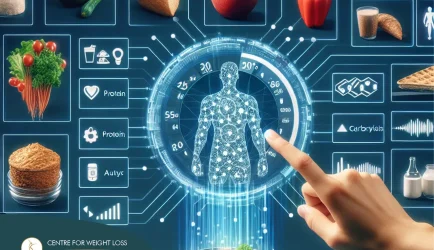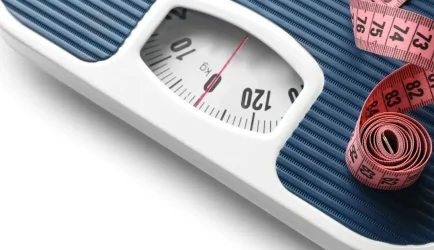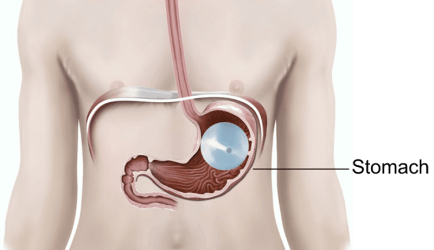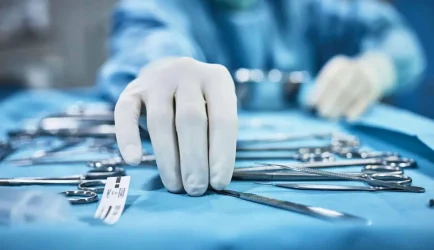My top 3 tips for improving gut health
I get asked time and time again,”Hey Doc, What probiotics should I take to improve my gut health?”.
Let’s face it, you’ve probably already Googled “which gut bacteria cause weight loss”, and found a whole list of bacteria names or tips. You may also know some popular (and expensive) brands of probiotics to take.
But let me cut to the chase – many scientific studies from microbiome researchers (who have PhDs and many published scientific papers to their names), are pointing to the fact that healthy and sustainable weight loss can be achieved with HEALTHY EATING HABITS, not by starvation diets and supplements.

Gut Bacteria and Weight loss 101
“Your gut microbes may help you to maintain a healthy body shape and even hold the answer to why some of us are protected from obesity.”
Your large intestine is a haven for trillions of mutually beneficial microbes that make up your gut microbiota. These gut bacteria form an ecosystem involved in vital functions like metabolism, hunger, and digestion.
Even though it doesn’t always receive the recognition it deserves because humanity has feared microbes since their discovery, your microbiome is important for many aspects of your body, including your weight.

In particular, a diverse gut microbiome is beneficial for your health. That’s because different types of bacteria perform a variety of jobs in your colon, and thus, microbial diversity helps control your metabolism and in turn, your body weight.
However, if your intestinal environment is imbalanced, it can cause what is known as dysbiosis, and that’s not good for anyone. It can mean that you have lower levels of beneficial bacteria, more opportunistic pathogens, or reduced diversity — all of which can have an impact on your body.
Altogether, this can negatively impact your health and may even explain why you put on weight more easily than other people. But like your weight, gut microbial health is also influenced by your lifestyle.
That’s right, food and exercise are also important for the diversity of your gut bacteria.

Microbes for weight loss: do they exist?
Search for skinny gut bacteria and you’ll actually read about microbes that reinforce the gut lining and modulate your metabolism.
Two gut bacteria are associated with lean body weight. Akkermansia muciniphila and Christensenella minuta are good gut bacteria for weight loss because they are linked with preventing weight gain and are often found in slim individuals.

You can try boost the abundance of A. muciniphila with prebiotic foods that fuel their activities. You probably eat some of these anyway, but increasing your intake could help the growth of Akkermansia in your gut and enhance your protection against obesity.
Three strategies on how to change gut bacteria to lose weight
Strategy #1 : Plan for Plant Based
Beneficial gut microbes are happy to trade plant-based foods and healthy fats for their health-promoting services.
Getting 30g of fiber every day from plants of different colours (think red peppers, orange pumpkin, purple carrots, etc.) may also help diversify your microbiota which is good for your overall health.
This was shown by the results of the American Gut Project, in which people who ate 30 plant foods of different colours per week had the greatest microbiota diversity.
Rainbow plant foods contain many different phytonutrients, like polyphenols, that help the body prevent free radical damage and inflammation. They also contain a variety of fibers for gut health. Both of these also nourish beneficial bacteria in the microbiota.

In a study involving type II diabetes patients, a vegan diet was shown to be more effective at controlling blood sugar levels than a usual diabetic diet. And, in the plant diet group, calorie intake was lower, which meant weight loss was more rapid. Interestingly, the beneficial bacteria that thrive on plant foods are also associated with better blood sugar control.
Strategy #2 : Go for the Rainbow
Put more colour in your diet to achieve a diverse microbial community in your gut, and at the same time, keep your metabolism in check too!
Eating plenty of fruits, vegetables, and whole grains is vital for your health, yet many of us are not eating enough. In fact, the western diet is so low in fiber that 73% of British people consume less than the recommended 400g of fruit and vegetables per day according to a 2014 study.
It’s called a phytonutrient gap. These natural plant chemicals are beneficial to our health and beneficial gut microbes. Fortunately, with a little effort, these foods can be easy to incorporate into your diet.
Colourful foods for microbiome and metabolism
|
Colour |
Foods |
Benefits |
|
Red |
Apples, cherries, cranberries, red onion, tomatoes, red cabbage |
Anti-inflammatory properties, antioxidants, immune system support, abundance of good gut bacteria |
|
Yellow |
Apples, bananas, lemons, ginger, yellow onions, corn |
Antioxidant properties, increase gastric emptying, healthy gut microbiome, reduces blood sugar balance |
|
Orange |
Oranges, apricots, mangoes, carrots, turmeric, yams |
Antioxidant effects in fat soluble tissues, abundance of healthy gut bacteria, fertility |
|
Green |
Brussels sprouts, green tea, olives, green apples, artichokes, greens, cabbage |
Antioxidant properties, healthy blood circulation, abundance of good gut bacteria |
|
Blue-purple |
Blueberries, blackberries, prunes, purple grapes, purple cabbage, purple kale, plums |
Antioxidant properties, sustenance for beneficial gut bacteria |
There is a lot of research that shows long-term weight gain is associated with a gut microbiome that lacks diversity — not consuming enough dietary fibre is a contributing factor to this. Luckily, by increasing your intake of rainbow foods, you can support your whole body, a healthy weight, and your gut microbes all at once.
Strategy #3: First Do no harm!
Bad gut bacteria and weight gain: antibiotics
Dysbiosis of the gut microbiome can result from other factors too, like antibiotics. This type of medication is linked to weight gain because they disrupt the microbial communities in your gut, either by preventing and slowing bacterial growth, or killing them.
Yet, the link between antibiotics and weight gain isn’t really a secret. Industrial agriculture has known for decades that low doses of antibiotics can encourage animals destined for meat consumption to gain weight faster.
This experiment that has been replicated in mice, who share many similar microbiome and biological traits with humans. These findings have led scientists to believe that antibiotics help explain the striking increase in childhood obesity in recent years.
This does not mean that you never take antibiotics. Rather you take them judiciously. Ask your GP or Medical practitioner about this.
According to a study presented at the University Medical Center Groningen at United European Gastroenterology Week in Barcelona the four most frequent culprits that can affect your Gut Microbiome are:
- Proton pump inhibitors (PPIs) – Somac, Nexium
- Metformin – a diabetes medication
- Antibiotics, and
- Laxatives – like Coloxyl, Movicol
If you’re enjoying reading my newsletter you may like to get a copy of my book
“Happy Gut Healthy Weight”
for more practical strategies.
Helping You Discover, Empower & Prosper

Dr Arun Dhir | GI Surgeon, Health Reformist & Passionate Educator.
Let’s Connect!
Subscribe to my YouTube Channel for weekly video content
Follow me on Instagram, Facebook and Linked In
Receive my news stories direct to your inbox! Sign up here.
About Dr Arun:
Besides having a busy private practice at Melbourne Gastro Surgery – Centre for Weight Loss, Dr Arun is an active member of the ANZ Association of Gastro-Oesophageal surgeons (ANZGOSA), ANZ Society of Metabolic and Obesity Surgery (OSSANZ) and Australian College of Nutrition and Environmental Medicine (ACNEM).
Dr Arun is also a senior lecturer (Monash University) and yoga and meditation teacher, with a strong interest in the mind-body-gut connection. He regularly writes and speaks about gut health, gut microbiome, obesity, gastrointestinal surgery and healing. Arun’s published works include Happy Gut Healthy Weight (Balboa Press 2018), Creating a New You – Health Journal (Metagenics 2019), and Your Mess Has a Message (2021).

